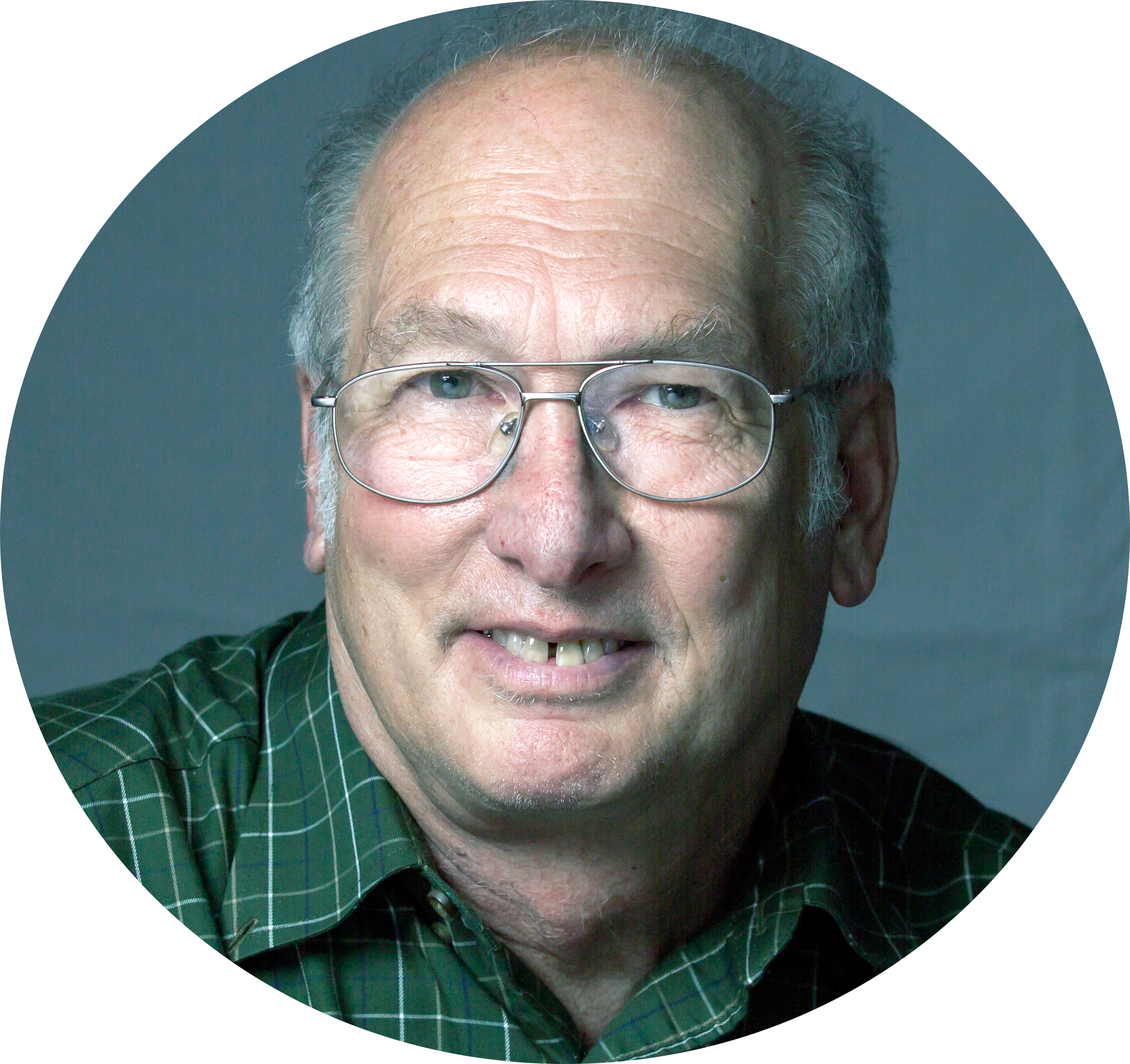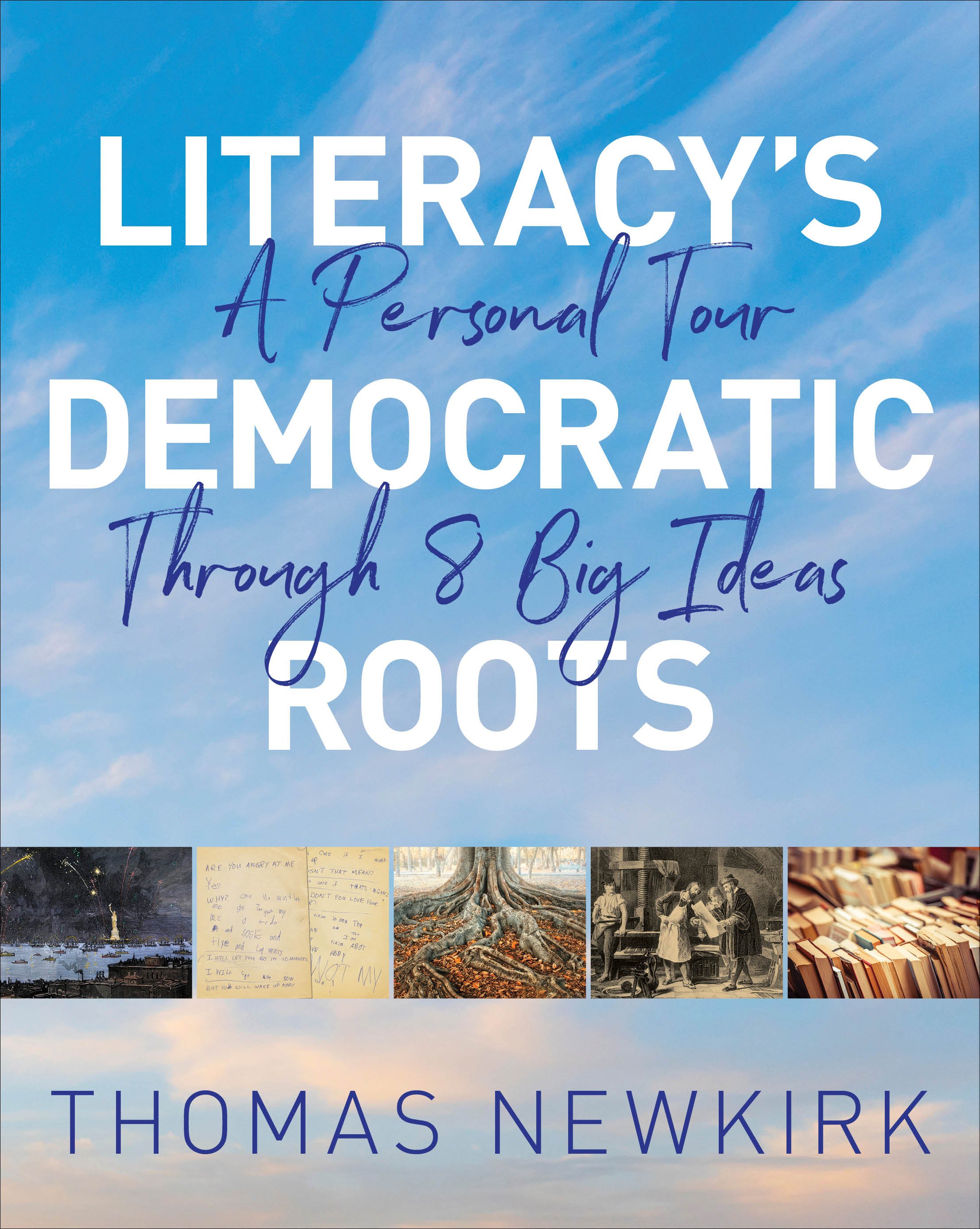
The following is an adapted excerpt from Thomas Newkirk’s Literacy’s Democratic Roots.
***
Some form of freewriting is part of the repertoire of most writing teachers I know. Its most influential champion is Peter Elbow, who in Writing Without Teachers (1973) argued against a seemingly self-evident idea about control—that we should make decisions in advance of writing, planning, outlining so that we don’t get offtrack. It would seem that the advance control can take the pressure off the writer. But Elbow argues the opposite, that it inhibits writers who never gain fluency because this vision of control misconceives the whole process:
Instead of a two-step transaction of meaning into language, think of writing as an organic, developmental process in which you start writing at the very beginning—before you know your meaning at all—and encourage your words gradually to change and evolve. (15)
Paradoxically, by suspending the requirement for advance control, and the expectations of the reader, writers are able to get words on paper and discover (as in talk) what they really want to say. Language is able to do what it does best—find more language, find meaning. Writers control a process that allows them to produce writing.
Elbow’s argument parallels that of Dorothea Brande in her 1934 guide (still in print) Becoming a Writer. Brande viewed the unconscious as a far more powerful resource than conscious planning:
The unconscious should not be thought of as a limbo where vague, cloudy, and amorphous notions swim hazily around. There is every reason to believe, on the contrary, that it is the great home of form; that it is quicker to see types, patterns, and purposes than our intellect ever can be. (151)
Both Brande and Elbow recommend freewriting—writing quickly and continuously for about ten minutes. The goal is to outrun the mental censor, suspend any audience awareness, writing badly to write well. As Elbow says, “let words talk to words.” Change subjects if you wish. The goal is productivity. Others call this a quickwrite or word sprint. The writing is colloquial, maybe rambling, talk-like because it is virtually impossible to write formally under these conditions.
Prompting: Mentor Texts and Modeling
Freewriting invitations can be totally open, with no suggested topic, or they can be focused on some kind of prompt. In The Quickwrite Handbook, Linda Rief (2018) shows how we can use excerpts from mentor texts to prompt writing. The mentor text can suggest a topic and show a way of writing about it. Early in a writing class I always ask students to write about food; it is a universal topic, and I love reading aloud a section of Charles Simic’s essay “Food and Happiness” (1994). Simic grew up in what used to be Yugoslavia, after World War II when food was scarce. He describes an eating contest with his uncle, “one of those wonders of nature everybody envies, a skinny guy who can eat all day long and never gain weight.” They’re eating big plates of beans, on an outdoor terrace, with all the neighbors watching. At one point, Simic is so full he slides off his chair onto the floor:
I’m dying, it occurred to me. My uncle was still wielding his spoon with his face deep in the plate. There was a kind of hush. In the beginning, everyone talked and kidded around, but now my aunt was exhausted and had gone to lie down. There were plenty of beans but I was through. I couldn’t move. Finally, even my uncle staggered off to bed, and I was left alone, sitting under the table, the heat intolerable, the sun setting, my mind blurry, thinking, this is how a pig must feel. (8)
A great read-aloud piece.
Sometimes the prompt is a told story. Mark Holt-Shannon, an eighth-grade teacher I have worked with, claims that “to teach story you have to tell stories, just talking and kind of basking in the feeling of a well-told story.” When I invited students to write about endlessly retold family stories, I was sure to tell my own about a late-night call from the university campus police.
The call came at about 3:00 a.m., jarring our sleep. My wife took the call, and I overheard a short conversation, after which she came into the bedroom and said, “There’s a UNH police officer in your office and you’re to call him.” So I dialed my own number and an officer answered quickly.
“Professor Newkirk, I am in your office and it appears to have been ransacked. There is paper strewn on the floor and all over your desk. The lights were on. The door unlocked, window open. File drawers are open.” He paused. “But nothing seems stolen—your tape recorder and typewriter are still here.”
Then he paused as if understanding something. “Professor Newkirk, I don’t mean to be impolite . . . but could you have left it this way?”
I admitted that I probably had left it that way.
“Well,” he said, “I’ll turn off the lights and lock the door and wish you a good night.”
Sometimes I add a double-listing step before the writing. The first list is possible topics—things on your mind, reactions to school, current annoyances, memories, something in the news. Once writers complete this list, I ask them to circle the best possibility for writing, put that topic at the top of the page, and write another list of any details, words, things that connect with that topic. Then we all write, fast, with no stopping to edit.
Responses to Freewriting
There are a number of low-risk ways of responding to this freewriting.

- The Sweep: Go around the class and have each student say in a sentence or two what they have written. In this way I hear something from every student, even the shy ones.
- The Chorus: Have each student pick a sentence they like. I point to class members, who then read their sentence.
- Peer Sharing: In one-on-one pairings, students either read or summarize what they have written.
- Count the Words: I have everyone count how many words they’ve written to show proof that we can be fluent.
- Locate the Center of Gravity: I have students look for some key idea, image, surprise, or insight that occurred during the writing. Again, this is a Peter Elbow idea.
The freewriting students do is often looser, just plain better, and more readable than what they do on papers or essays. And, the freewriting helps me know them better, and I can use this knowledge as a resource when we turn to analytic or research writing. A student whose parents bitterly divorced may have opinions about divorce—Luis Moll called this a fund of knowledge the student brings to school. Freewriting helps us tap into that fund of knowledge.
***
Listen to Tom Newkirk on the Heinemann podcast Commuter Series.
Buy Literacy's Democratic Roots below!

Thomas Newkirk is the bestselling author of Literacy's Democratic Roots, Minds Made for Stories along with numerous other Heinemann titles, including Writing Unbound, Embarrassment, The Art of Slow Reading, The Performance of Self in Student Writing (winner of the NCTE’s David H. Russell Award), and Misreading Masculinity. He taught writing at the University of New Hampshire for thirty-nine years, and founded the New Hampshire Literacy Institutes, a summer program for teachers. In addition to working as a teacher, writer, and editor, he has served as the chair of his local school board for seven years.



